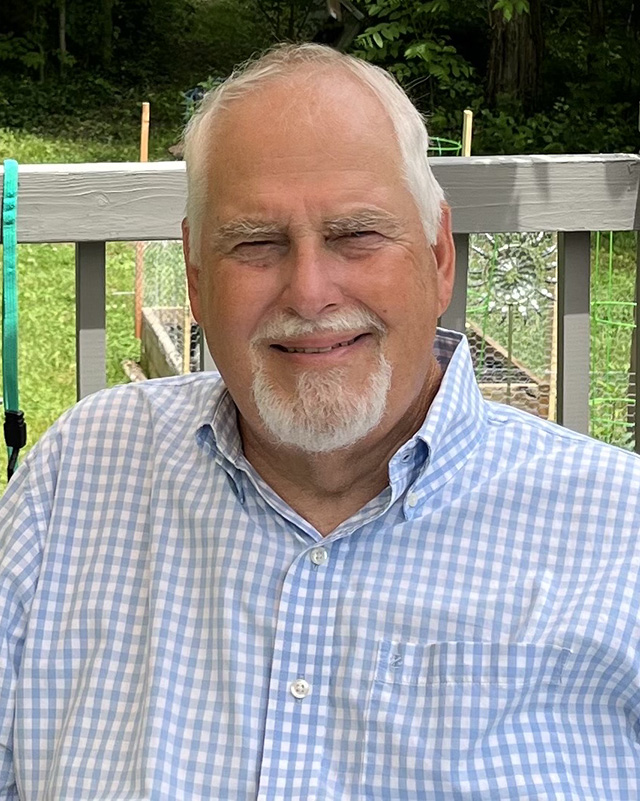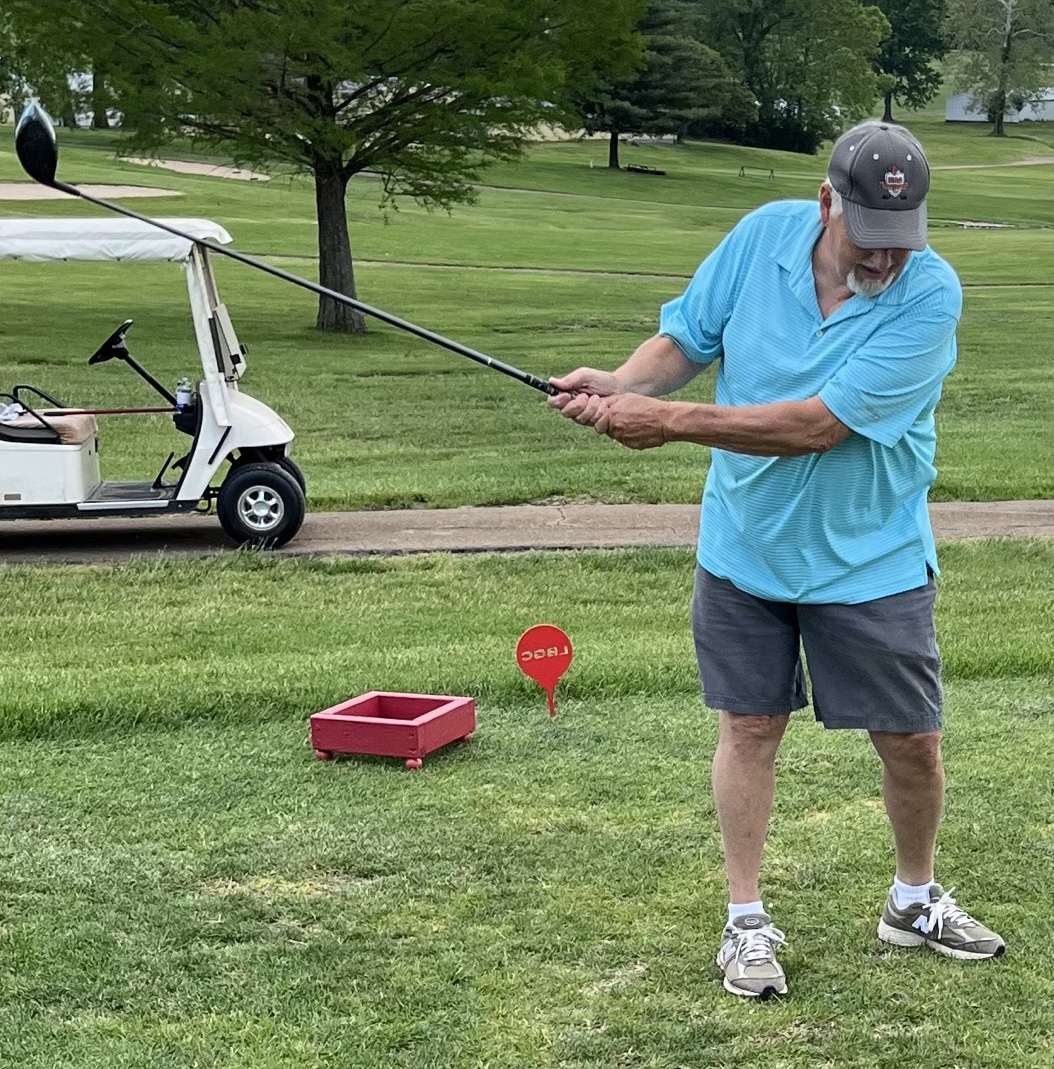Minimally invasive surgery produced major results for active retiree
Bill Bunch’s favorite activities include golfing, tending to his yard, and playing catch with his grandson.
Each one became more difficult and less enjoyable for the retiree during a six-year span in which a worsening back condition affected his hips, legs, and feet.
 Bill’s spacious yard got hard to navigate due to hip pain. His sometimes-shaky balance due to numbness made him question drives in the tee box. And when his grandson, a catcher, asked him to put a little more heat on his fastball, there was no sizzle to be summoned because Bill couldn’t bend, twist, and land like he once did.
Bill’s spacious yard got hard to navigate due to hip pain. His sometimes-shaky balance due to numbness made him question drives in the tee box. And when his grandson, a catcher, asked him to put a little more heat on his fastball, there was no sizzle to be summoned because Bill couldn’t bend, twist, and land like he once did.
“I hate to tell you this, buddy, but I can’t throw it harder,” the 74-year-old grandfather recalls saying that day.
That frustrating game of catch helped crystalize Bill’s decision to pursue lasting relief. He found it through a minimally invasive operation at Missouri Baptist Medical Center.
Too much anguish
As he neared his 70th birthday, Bill started feeling right hip discomfort. It then spread to his left hip. Walking, something Bill never had a problem with before, became an obstacle because he could only walk in 10-minute intervals before sitting to let his hip pain subside.
“Something as simple as going to the grocery store became a challenge,” Bill says. “It was aggravating. I was always causing everyone to stop and wait on me.”
Bill has arthritis in multiple joints, but doctors found none in his hips. That led to a pinpointing of his spine as the issue, but two different rounds of injections prescribed to decrease the discomfort did not work. Meanwhile, new symptoms arrived. Bill’s left leg started falling asleep after long periods of sitting. He began to feel numbness in both feet.
“It was getting worse and worse,” he says. “Finally, I decided I can’t live like this anymore. It was causing me too much anguish.”
A minimally invasive answer
Thanks to a recommendation from a physical therapist, Bill scheduled a consultation with Magalie Cadieux, MD, a WashU Medicine neurosurgeon at Missouri Baptist Medical Center.
Dr. Cadieux diagnosed nerve compression near Bill’s L4 and L5 vertebrae, the lowest vertebrae in the lumbar spine, a crucial area for supporting the entire spine, and where many nerves, arteries, and veins reside.
How Bill sustained the damage is unknown—he thinks it could date back to a hard fall on icy steps he experienced in his 30s. How to address it was clear to Dr. Cadieux.
Bill needed an operation called a minimally invasive posterior spinal decompression, which relieves pressure on the spinal cord and nerves by removing damaged material and creating more room in the spinal canal. After making a small incision and with the help of specialized medical instruments, Dr. Cadieux performed the tubular decompression in early November 2024.
“Lumbar stenosis at L4-5 is a very common condition that can be very debilitating for patients like Mr. Bunch,” Dr. Cadieux says. “Once a patient is a candidate for minimally invasive surgery through tubes, it’s a great option to consider.”
“To be a candidate for minimally invasive surgery, specific criteria need to be seen on MRI imaging. Absence of listhesis—slippage or displacement of one vertebra relative to another—and presence of ligamentum flavum hypertrophy—the thickening of a spinal ligament that can lead to nerve compression and pain—are usually what I look for.”
“The recovery from the surgery is usually easier on the body as the incision is small and there is less muscle disruption. I like to say it’s a minimal recovery for a maximal satisfaction.”
Bill was out of the hospital the same day of his surgery.
“I’ve got a spot on my back the size of a half-dollar coin,” he says, “That’s it. I didn’t have any problems with the surgery. It healed up like it was supposed to. I was amazed.”
Having fun again

Bill returned to his home in Bonne Terre and committed to eight weeks of physical therapy, a process he believes helped him overcome initial soreness and get back on the golf course quickly.
Dr. Cadieux eased Bill’s physical restrictions in January and, in February, she cleared him to pick up his clubs.
“It didn’t hurt at all,” Bill says of his return to the golf course. “I’m back to swinging like I did before my back was affecting everything.”
His hip pain has disappeared along with the numbness in his legs. His mobility is back. At 75, he can touch his toes. He’s working hard in his yard again, whether it’s trimming trees or stacking wood.
And he has big plans for catch with his grandson.
“Hopefully,” Bill says, “I’ll be able to throw it a little harder now.”
Make an appointment with a spine specialist by calling 314-996-5433. Learn more about spine care and surgical options.